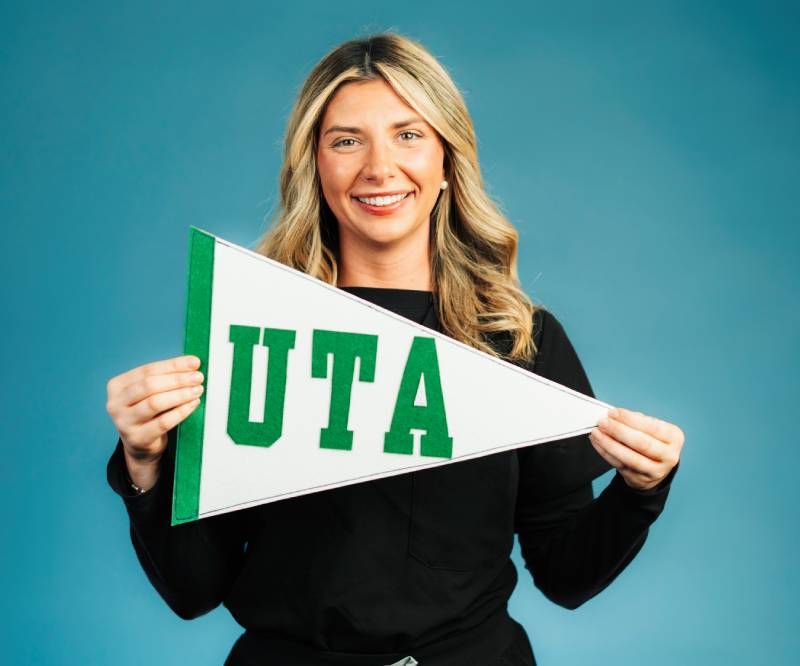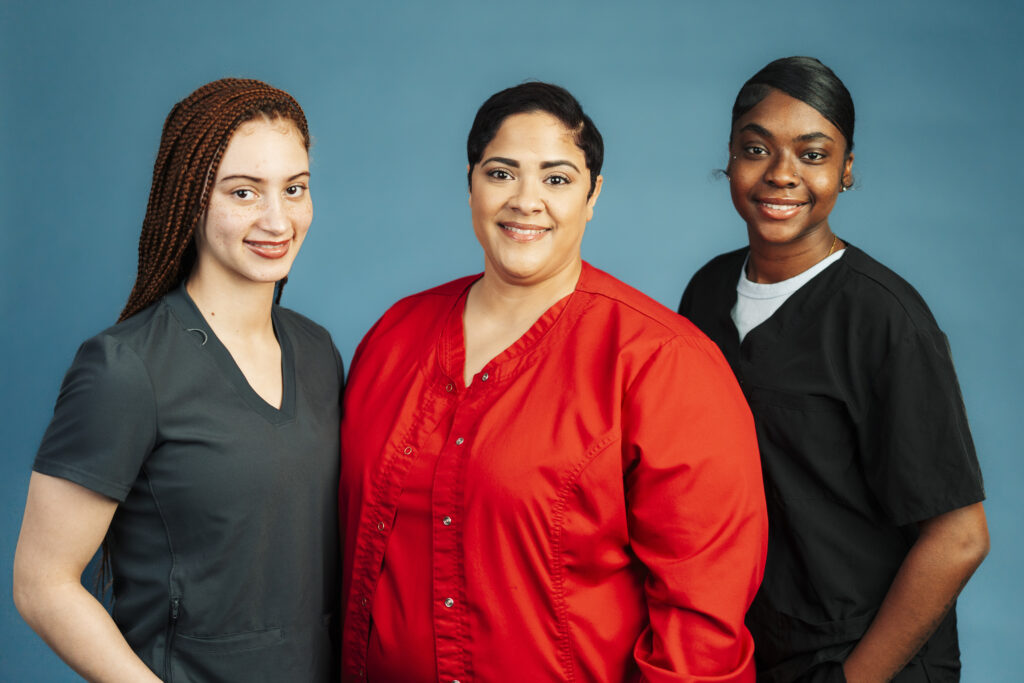Title IX Coordinator – Kelli Harvey
Vice President of Organizational Development
227-B Bendel Road
Lafayette, LA 70503
(337)988-4042 Office
(318)278-1981 Cell
[email protected]
Office for Civil Rights
Dallas Office
U.S. Department of Education
1999 Bryan Street, Suite 1620
Dallas, TX 75201-6810
(214) 661-9600
[email protected]
Prevention
SEXUAL MISCONDUCT PREVENTION AND PROTECTION STRATEGIES
It is the responsibility of all of us to make sure Unitech Training Academy is free from sexual misconduct. The following strategies are provided to assist you in having healthy and safe sexual encounters and to avoid potentially unsafe and dangerous situations.
PREVENTION: HOW TO AVOID COMMITTING SEXUAL MISCONDUCT
If you find yourself in the position of being the initiator of sexual behavior, you owe sexual respect to your potential partner and yourself. These suggestions may help you avoid committing and/or being accused of sexual misconduct:
• Clearly communicate your intentions to the other person and give them a chance to clearly communicate their intentions to you.
• Listen carefully. Take time to hear what the other person has to say. If you feel you are receiving unclear or conflicting messages from the other person, you should stop, defuse any sexual tension and communicate better.
• Do not assume that you have consent to sexual activity just because someone leaves or goes to a private location with you.
• Understand and respect personal boundaries. Do not pressure a potential partner. Do not fall for the cliché: If they say “no”, they really mean “yes.” If the other person says “no” to sexual activity, believe them and stop.
• Don’t make assumptions about consent; about someone’s sexual availability; about whether they are attracted to you; about how far you can go or about whether they are physically and/or mentally able to consent. If there are any questions or ambiguity then you DO NOT have consent and you should stop and communicate.
• Don’t take advantage of someone’s drunken, drugged, or otherwise incapacitated state.
• Realize that your potential partner could be intimidated by you, or fearful. You may have a power advantage simply because of your gender, status, or size. Don’t abuse that power.
• Understand that consent to one form of sexual activity does not constitute consent for any other sexual activity.
• Silence and passivity cannot be interpreted as an indication of consent. Read the other person carefully, paying attention to verbal and non‐verbal communication and body language. If it is not clear by the other person’s words and/or actions that they are a willing participant in that specific activity then you need to stop.
PROTECTION STRATEGIES: HOW TO MITIGATE YOUR RISK
It is never your fault if someone takes sexual advantage of you but there are things you can do to mitigate the risk of someone taking advantage. These strategies are provided with no intention to victim‐blame and with recognition that only those who commit sexual violence are responsible for such conduct. These suggestions may nevertheless help you to reduce your risk of experiencing sexual violence.
• Trust your instincts. If you feel uncomfortable or unsafe about a person or situation, trust your gut and remove yourself from the situation as soon as possible.
• Be aware of your alcohol intake and/or other drug use and understand that alcohol and/or other drugs can impair your judgment and lower your sexual inhibitions. This could make you vulnerable to someone who views a drunk or high person as a sexual opportunity.
• Don’t leave your drink unattended and don’t accept drinks from someone you don’t know or trust. If you’ve left your drink alone, just get a new one.
• Know your sexual limits and make them known as early as possible in a potential intimate situation.
• If you do not want to engage in a particular activity, tell the other person “NO” clearly and firmly.
• Try to remove yourself from the physical presence of a sexual aggressor, if you can do so safely. If someone is nearby, ask for help or, if it is safe to do so, text or call someone.
• Watch out for your friends and ask that they do so for you. A real friend will step in and challenge you if they see you are in a potentially dangerous situation. Respect them when they do. If a friend seems out of it, is too intoxicated, or is acting out of character, get your friend to a safe place immediately.
• Don’t go somewhere with someone you don’t know well. If you do leave a party with a new friend, tell the friends you came with where you are going and when you are coming back.
Reporting
Title IX Resources
Unitech Training Academy strives to create a safe environment for faculty, staff, and students. The Title IX resource page provides valuable relationship and sexual assault resources for each of our seven campus locations.
Know your Title IX
http://knowyourix.org/title-ix/title-ix-the-basics/
LGBTQ Sexual Violence Resources
http://www.nsvrc.org/publications/nsvrc-publications-information-packets/sexual-violence-individuals-who-identify-lgbtq
Title IX Blog
http://title-ix.blogspot.com/
Pregnant and Parenting Students
http://www2.ed.gov/about/offices/list/ocr/docs/pregnancy.pdf
Key Terms
Title IX Training
Initial Overview and Response
ATIXA
Presented by Brett Sokolow, Scott Lewis, Kim Pacelli, Saundra Schuster, and Daniel Swinton
https://cdn.atixa.org/website-media/atixa.org/wp-content/uploads/2020/05/11155019/ATIXA-R3-Webinar-Slides_5.11.20.pdf
Available on Demand
Title IX Coordinator/ Investigator Training:
Rapid Response Webinar: Understanding the Final Title IX Rule and Its Impact.
NASPA – Student Affairs Administrators in Higher Education
Presented by Jill Creighton, William Kidder, and Wanda Swan
Available on Demand
Decision Maker Training
An Early Read on the New Title IX Regulations
Holland & Knight
Presented by Philip J. Catanzano and Jeffrey Nolan
https://www.hklaw.com/en/insights/media-entities/2020/05/understanding-the-newly-released-title-ix-regulations
Available on demand
Confidential Advisors – Response Team
Louisiana Board of Regents LaSafe
Louisiana Sexual Assault Free Environment Project
Confidential Advisors Training Modules
Title IX – Power-Based Violence
Title IX and Sexual Harassment Presentation
Available on Demand
U.S. Department of Education Title IX Webinars:
Department of Education Title IX Resources
The First Amendment and Title IX: An OCR Short Webinar
OCR Short Webinar on How to Report Sexual Harassment under Title IX
Conducting and Adjudicating Title IX Hearings: An OCR Training Webinar
OCR Webinar on Due Process Protections under the New Title IX Regulations
OCR Webinar on New Title IX Protections Against Sexual Assault
OCR Webinar: Title IX Regulations Addressing Sexual Harassment


